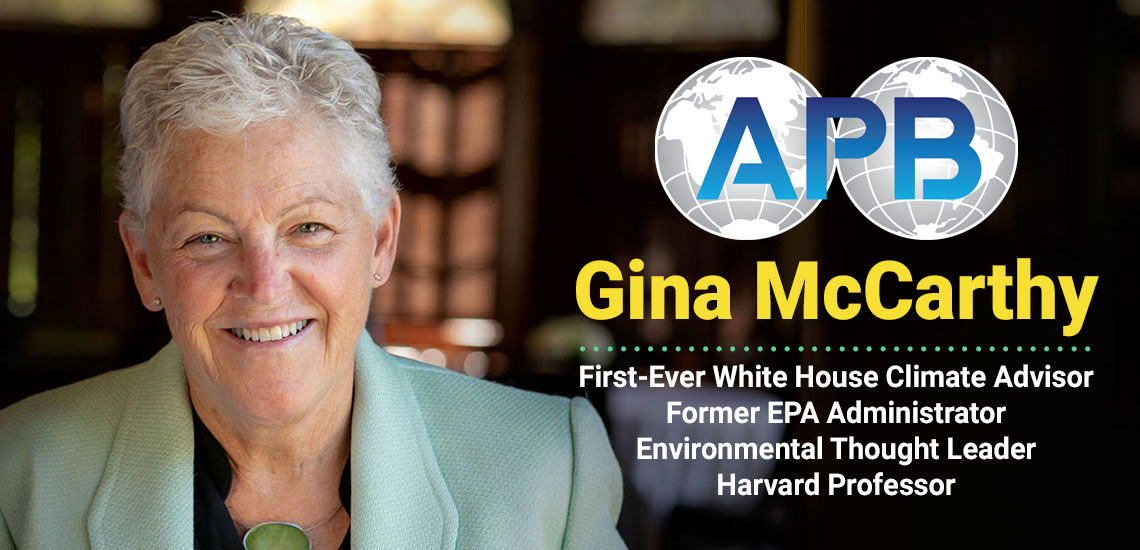5 Lessons from Former Climate Chief Gina McCarthy On Getting Tough Things Done
28 Nov 2023

One of the nation’s most respected voices on the environment and public health, former White House National Climate Advisor and former EPA Administrator Gina McCarthy recently sat down with GreenBiz to discuss "practical strategies on how to advocate for controversial plans; to untangle intractable problems; to drive change in slow-moving organizations; to maintain personal resilience; and to know when to take risks." Read her valuable insights and advice below.
1. Don’t Take Setbacks Personally
"[It’s] hugely important for people to try to divorce themselves as a person from the job they're doing. I mean, you always bring yourself into it, but if you miss the mark, if you get criticized, you pull up your big-boy pants, right? And you say, ‘OK, going after it again, what’d I do wrong, how do I think differently? Who is my ally in this? What are the challenges?’ And you just do it again. It's not life-threatening to be criticized."
2. Don’t Strive for Unanimous Support
"You have to acknowledge that you're always going to make somebody unhappy in this transition that we're in. … It's about what you think is right and how you move forward with the people that you feel are most able to join that decision in an intelligent way. Not just a gut instinct—you explain it to them, it makes sense, and you move it forward. I've never thought that unanimity was really the way to go, because generally it means that everybody gives up a lot."
3. Everything is Negotiable
"I think everybody knows [the Inflation Reduction Act] took a really long time—and a lot of quiet time—to move forward. There were a few key sticking points in it that some folks on [Capitol] Hill didn't particularly care for. And the [question was]: Do you just give it up and not push? … My entire job was about saying, ‘No, nobody pulls the plug. No, we don't give up. Nope. Nobody's going to do it. Nope, nope, nope, nope, nope.’ "There was this one thing that we thought was important, and folks on the Hill thought it was important. Someone didn't think it was important or doable. So I can remember going in to Ali Zaidi, my deputy—who was the brilliant architect, with a couple of other folks in the White House, of the IRA, not me. I said … ‘If I can't get that, I want you to tell me what the very next best thing is that we could do. … There has to be something that gets us 80 percent of the way there. Maybe not 100 [percent].’ And all of a sudden he looked at me and he said, ‘Oh, there is something!’ and left. That something changed. And the whole thing moved. … "So I don't really care when people say they're at the dead end or everything's non-negotiable. Everything is negotiable. And if you don't [or] can't figure out the straightforward way, then you go around another, you find another champion, you find another way to address it. You work something out, because these things are too important to just let them die."
4. Focus on the People You’re Fighting For
"It is all about who you're doing something for. It's not about who you're fighting against. That's the least of your problems. The bigger benefit and opportunity is to actually just get in people's heads, understand where they are, and understand what, to them, makes their life better. If you do that every step of the way, it doesn't matter how difficult the problem is. You can frame it in a way that it's meaningful, in a way that it's hard to fight against."
5. Just Worry About Today
"You're going to find that … there'll be a technology or a process or a product that comes to market that will move you to net zero in a way that you never anticipated. … Don't worry so much about where we're going to be in 10 or 15 years. Worry about what you're doing today. Worry about the creativity you can bring to the table. Because if you do, we will get there."
